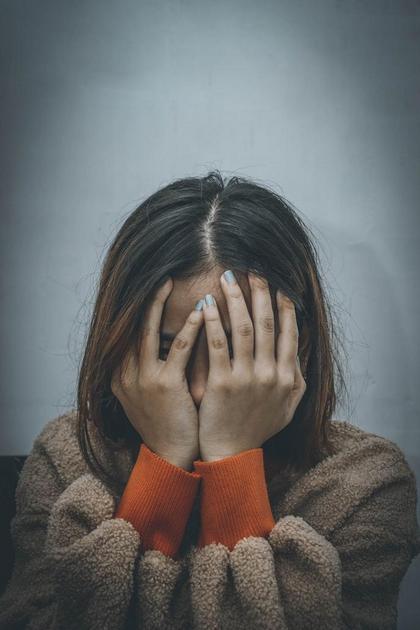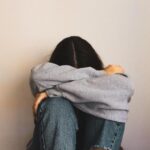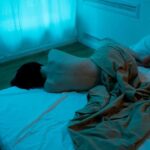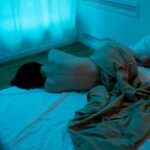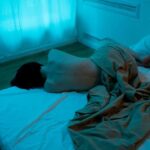As women enter their 30s, they often face a variety of unique health challenges, including hair loss and sleep disorders. These issues frequently intertwine, creating a complicated web that can impact overall well-being. In this article, we will explore the connections between these two common problems and uncover ways to manage them, empowering you to reclaim your health and confidence.
Understanding Hair Loss in Women
Hair loss is a significant concern for many women, especially those over 30. It is often more than just a cosmetic issue; it can greatly impact self-esteem and overall confidence. The journey of coping with hair loss can feel isolating as each woman faces unique struggles. Many don’t realize that hair loss is prevalent among women, and its causes can range from hormonal imbalances to stressors related to everyday life.
One of the primary causes of hair loss in women is hormonal changes, particularly during pregnancy, menstruation, and menopause. Estrogen and progesterone levels fluctuate, which can lead to changes in hair growth cycles. It’s also essential to consider genetic predisposition. If women in your family have experienced hair loss, you may be genetically predisposed to encounter similar issues.
Moreover, physical and emotional stress can also contribute to hair loss. Stress triggers the body to produce androgens, hormones that can shrivel hair follicles. Understanding these factors is crucial in finding effective treatments.
The Link Between Sleep Disorders and Hair Loss
Sleep disorders are often intertwined with hair loss in women. Many women over 30 experience insomnia, restless legs syndrome, or other sleep disruptions. When we don’t sleep well, our body does not have the opportunity to restore and recharge itself. This lack of quality sleep can exacerbate existing hair loss and can lead to increased anxiety, further affecting sleep patterns.
Researchers have found that poor sleep quality can trigger a significant increase in hair shedding. The connection lies in our body’s stress response. Sleep deprivation raises cortisol levels, which can negatively affect hair follicles and lead to more hair loss.
If you’ve noticed your hair thinning while also having trouble sleeping, know that you’re not alone. Many women are navigating this complex relationship, but understanding it can be the first step to healing.
How Hormones Affect Sleep and Hair Health
The role hormones play in both hair health and sleep quality is complex yet fundamental. Hormonal changes due to menopause can lead to insomnia, affecting the quality of hair growth. Estrogen is known to promote hair growth, and its decline can lead to thinning hair.
Additionally, conditions like polycystic ovary syndrome (PCOS) often result in hormone imbalances, leading to both sleep issues and hair loss. The symptoms can be overlapping, making it challenging to identify the root cause without proper medical advice.
Recognizing the symptoms and understanding your hormonal health can serve as a valuable tool in navigating these challenges. Regular medical check-ups can provide insights into your hormonal health, allowing you to seek appropriate treatment.
Coping with Anxiety and Restless Nights
Anxiety affects many women as they balance multiple roles in their lives. As worries climb, so does the struggle to fall asleep. Anxiety often leads to a frustrating cycle where sleepless nights lead to increased hair loss, which in turn can heighten anxiety.
Consider incorporating relaxation techniques to help manage anxiety. Practices such as yoga, meditation, or deep-breathing exercises can be beneficial. Finding time to unwind each day can help soothe an overactive mind and promote better sleep.
Additionally, reaching out to supportive friends or even professional help can be invaluable. Sharing your experience with someone who understands can lighten the load significantly.
Nutritional Needs for Healthy Hair and Sleep
A balanced diet plays a crucial role in both hair health and sleep quality. Nutrients such as biotin, iron, vitamins A and C, and omega-3 fatty acids are essential for healthy hair. Incorporating foods rich in these nutrients can be an effective strategy to combat hair loss.
Moreover, sleep-supporting nutrients can also improve overall sleep quality. Magnesium, chamomile, and glycine are known to aid in relaxation and promote deeper sleep. Including foods like almonds, spinach, and herbal teas can turn mealtime into an empowering routine for self-care.
Don’t overlook the importance of hydration. Drinking plenty of water can flush out toxins and support healthy hair growth while improving skin and body function.
Importance of Stress Management
Managing stress is vital for promoting overall health and well-being. Chronic stress can lead to increased hair shedding and sleep disturbances. Creating a regular routine for stress management can help maintain a sense of balance.
Consider dedicating a few minutes each day for activities that bring you joy. This could be a leisurely walk in nature, reading a favorite book, or spending time with loved ones. Making these moments a priority can greatly impact your mental state, leading to healthier hair and improved sleep.
The Role of Sleep Hygiene
Practicing good sleep hygiene can dramatically improve your quality of sleep. Simple changes can be substantial. Creating a bedtime routine signals to your body that it’s time to unwind and prepare for rest.
Consider turning off screens at least an hour before bed, maintaining a cool and dark sleeping environment, and limiting caffeine intake in the afternoon and evening to improve sleep quality.
Good sleep hygiene is an essential pillar in promoting healthy hair growth alongside restful sleep, allowing your body to regenerate effectively.
Natural Remedies for Hair Loss and Insomnia
Many women are exploring natural remedies for both hair loss and sleep challenges. Herbal remedies such as saw palmetto, ginseng, and ashwagandha are gaining popularity for their potential benefits in promoting hair growth and reducing stress levels.
Essential oils, including rosemary and lavender, can also be beneficial. These oils can be massaged into the scalp to encourage hair growth or diffused in the bedroom to promote relaxation before sleep.
It’s essential to consult with a healthcare provider before starting any new supplements to ensure they fit your specific needs.
Empowering Practices for Self-Care
Prioritizing self-care is essential, especially when faced with the challenges of hair loss and sleep disorders. Empowering practices can enhance your overall well-being. This may involve engaging in activities that spark joy, nurturing friendships, and being kind to yourself.
Consider journaling your thoughts or feelings as a way to process emotions and reflect on progress. Establishing goals and celebrating small wins can significantly boost morale and encourage resilience.
Being gentle with yourself during these times is key. Understand that it’s okay to seek help and allow yourself the grace to navigate these challenges with support.
Finding Community Support and Resources
Finding a community of women who understand your experiences can be incredibly healing. Whether through online forums, local support groups, or social media, connecting with others facing similar challenges will help in sharing experiences, advice, and support.
Engaging with community resources can lead to valuable information regarding coping strategies, new treatments, and nurturing practices for both hair health and sleep quality.
If you haven’t yet, consider exploring various groups and support networks to find one that resonates with you. Finding your tribe can shift the experience from loneliness to solidarity and strength.

